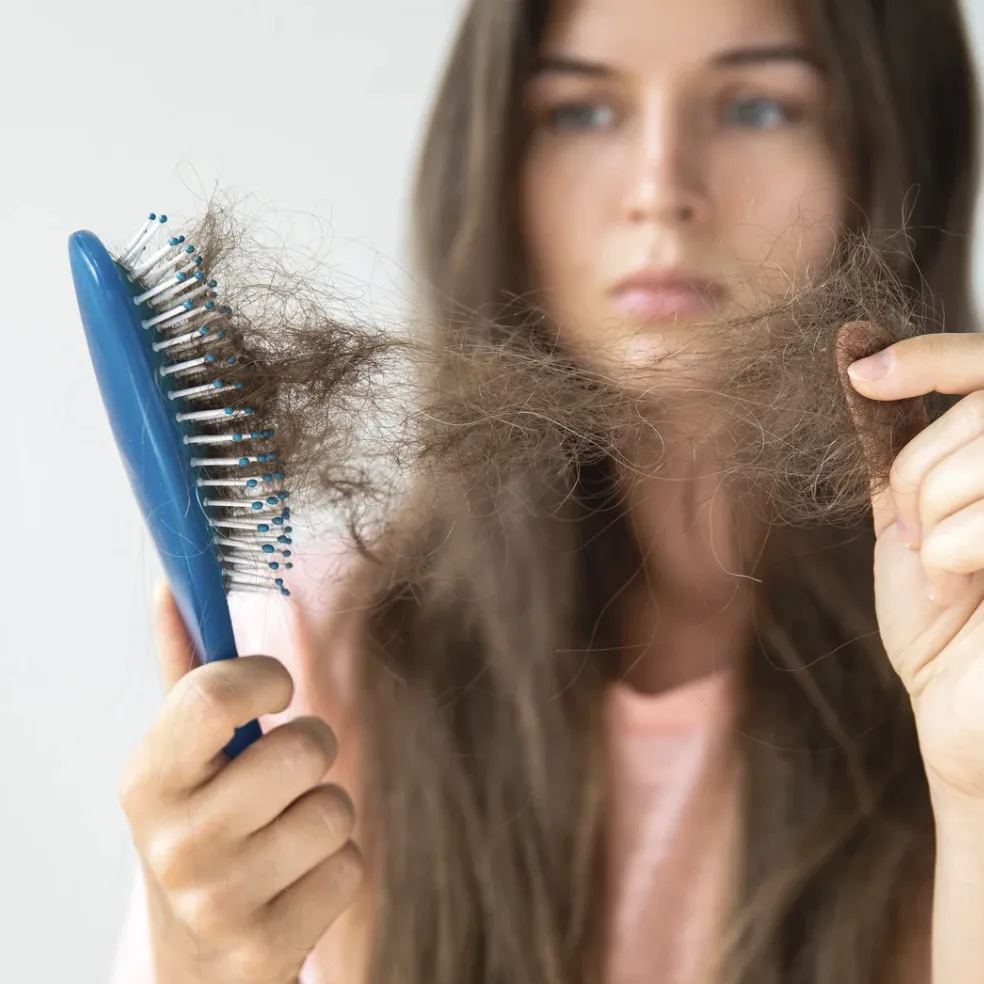
What Causes Hair Loss?
What causes hair loss?
Hair loss is never just about the hair. It’s a signal that something deeper is happening— within your body, your scalp, or your daily routine.
Here are the most common causes of hair loss that I help clients identify and address:
1. Hormonal Imbalances
Hormones play a major role in regulating the hair growth cycle. One of the most common and misunderstood causes of hair loss is the hormone DHT, or dihydrotestosterone. Imbalances, especially related to DHT, can shrink hair follicles over time, leading to thinning and shedding.
What is DHT?
DHT is a byproduct of testosterone. Everyone produces it—men and women alike—but some people are genetically more sensitive to its effects.
How DHT Affects Hair Follicles
When DHT binds to receptors in the hair follicles, especially around the temples, crown, and top of the scalp, it causes the follicles to:
Shrink (miniaturize)
Grow thinner, weaker hair
Shorten the growth cycle
Eventually stop producing hair altogether
This condition is known as androgenetic alopecia, or male/female pattern baldness. Once the follicle is miniaturized for too long, it can become dormant or die, making early intervention key.
DHT Animation | Understanding Hair Loss | How DHT Affects Hair Growth
2. Stress (Emotional or Physical)
Sudden or chronic stress can trigger a condition called Telogen Effluvium, where more hairs than normal shift into the shedding phase. Stress-related hair loss may happen after:
Illness or surgery, Childbirth, Emotional trauma, Nutritional deficiencies or crash dieting, etc.
3. Nutrient Deficiencies
Your hair is a reflection of your internal health. Lacking essential nutrients like iron, zinc, B-vitamins, protein, and vitamin D can weaken the hair shaft and slow down growth. Even dehydration or poor gut health can have an impact.
4. Scalp Conditions
A healthy scalp is essential for healthy hair. Issues like seborrheic dermatitis, psoriasis, buildup, inflammation, and poor circulation
can block follicles and affect growth. That’s why we always start with a deep detox and scalp analysis.
5. Medical Conditions & Medications
Certain autoimmune conditions, like alopecia areata, or treatments such as chemotherapy, can affect hair health. Some medications (like blood thinners or antidepressants) may also contribute to shedding as a side effect.
6. Overstyling & Product Buildup
Frequent use of heat tools, tight hairstyles, and harsh chemical treatments (like relaxers or bleach) can lead to traction alopecia or breakage. Many store-bought products also contain ingredients that build up on the scalp and suffocate the follicles.
7. Poor Scalp Hygiene or Lack of Stimulation
A neglected scalp can become clogged, inflamed, or overly oily. Without proper
cleansing, exfoliation, and stimulation, circulation decreases, leading to weak hair growth. Scalp health is the foundation of hair health that is why is our priority.
What We Can Do About It
At The Curl & Scalp Studio By Lina Palacio, we address hair loss through a multi-therapeutic approach that includes:
Topical scalp treatments to improve follicle health
DHT-blocking internal support (natural supplements or nutrition),
Laser therapy to stimulate growth and improve circulation,
Electroporation technology to deliver active ingredients deeper into the scalp
Detox & exfoliation to clear buildup and reduce inflammation.

Click here to schedule a consultation for hair loss

